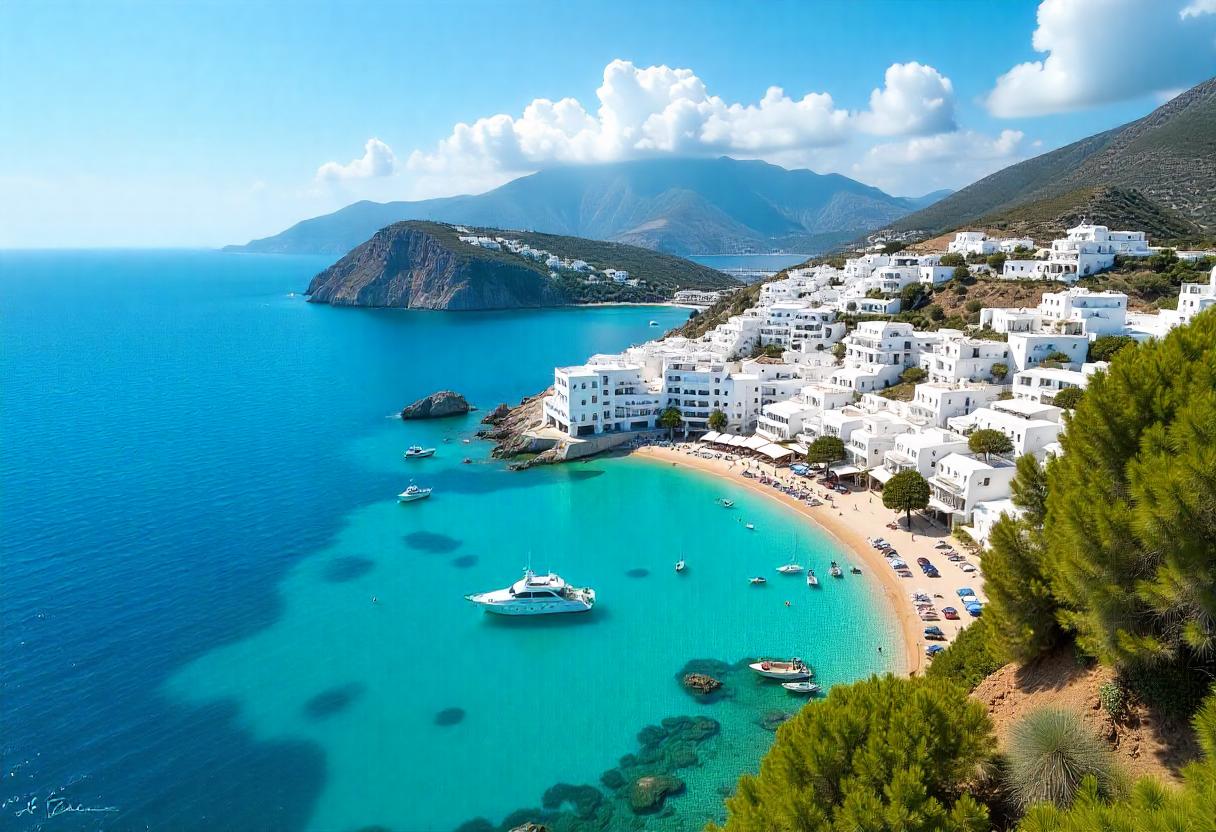<> Viral of Today <>
Home » TOURISM NEWS » Spain’s Proposed Five-Star Resort Development On Kea Island In Greece Faces Rejection By Local Authorities Amid Growing Fears Of Over development And Environmental Degradation Saturday, June 7, 2025Spain’s proposed five-star resort development on Kea Island in Greece has been rejected by local authorities due to escalating concerns over overdevelopment and environmental degradation. The resort, planned by Spanish developer Inmo Park Invest, was set to feature over 300 guest rooms on the island’s western coast. However, local government officials and residents have voiced strong opposition, citing significant environmental risks, including strain on the island’s already limited water resources and inadequate housing for the resort’s workforce. These concerns, coupled with fears of further damage to Kea’s natural beauty and infrastructure, have led to the rejection of the project, raising questions about the balance between tourism development and environmental sustainability on this quiet Cycladic island.The local government of Kea, or Tzia, the Cycladic island nearest to Athens, has denied approval for the environmental impact assessment of a proposed luxury resort, raising questions about the project’s future. The planned development, spearheaded by Spanish developer Inmo Park Invest, was intended to be located along the island’s western coast in the Vroskopos region, not far from an existing high-end complex. had already been built, despite previous environmental concerns. The proposed five-star resort was expected to feature over 300 guest rooms.The Kea Municipal Council decisively opposed the proposal, emphasizing two key concerns: the strain it would impose on the island’s water resources and the lack of accommodation for the resort’s workforce. The resort was expected to consume 64,000 cubic meters of water annually, sourced from three groundwater wells. This raised alarms about further stressing the island’s already limited water supply, particularly in the Poisses area, which has been grappling with severe water shortages that have impacted local agriculture.In addition to the water issue, the resort’s lack of accommodation for its employees in this remote part of the island was another major concern. Many locals worried that the absence of adequate housing for staff would exacerbate the island’s infrastructure challenges, further straining its limited resources. Despite these objections from the municipality and mounting local opposition, preliminary work, including land excavation and the drilling of wells, has already begun on the site, which has raised concerns among residents about the creation of irreversible changes to the island’s landscape and environment.Tourism is a crucial pillar of Greece’s economy, contributing nearly 25% of the nation’s GDP. The country has witnessed a significant rise in international visitors, with more than 40 million tourists arriving in 2024 alone. Greece’s popularity as a tourist destination, especially during the summer, has led to growing concerns about overtourism, which is putting immense pressure on the environment and local communities. Experts warn that overconstruction, environmental degradation, and a strain on natural resources, such as water, could threaten the sustainability of tourism in the country.Kea Island, while not as famous as Mykonos or Santorini, has become increasingly popular among those seeking a quieter, more authentic Greek island experience. With its proximity to Athens, just 60 km (37 miles) away, Kea is easily accessible via a one-hour ferry ride from Lavrio, the site of the ancient silver mines of Greece. This proximity makes Kea an ideal destination for travelers looking to escape the crowds of more well-known islands without straying too far from the capital.The island’s capital, Chora, sits atop the ancient town of Ioulida, which was the capital of Kea during the late Roman and early Byzantine periods. Chora is a charming town, featuring traditional clay-tile-roofed houses, cobblestone streets, quaint terraces, art galleries, and a maze of stairs leading to stunning panoramic views. The town is home to two notable 19th-century buildings designed by Ernst Ziller, a prominent architect: the new Town Hall and the Historic Municipal building.Kea offers a more affordable alternative to some of the more expensive Greek islands, with reasonable accommodation options that make it an excellent choice for families and travelers looking to explore a less commercialized destination. The island provides the perfect balance of authentic Greek charm and modern comforts, making it an ideal location for those who want to experience the beauty of the Cyclades without the crowds or high prices.One of the primary attractions of Kea is its pristine beaches. With crystal-clear waters and sandy shores, beaches like Otzias, Koundouros, Pisses, Gialiskari, Frea, Korissia, and Kampi offer idyllic spots for sunbathing, swimming, and relaxing by the sea. These beaches remain less crowded compared to the more famous islands, making them perfect for a peaceful day by the water. Kea’s beaches also cater to those seeking more active pursuits. There are several water sports facilities on the island where visitors can rent equipment and take lessons from experienced instructors. The island even hosts water sports competitions throughout the year, adding an extra layer of excitement for those seeking adventure.For nature lovers, Kea is a treasure trove of scenic landscapes and historical sites. The island features an extensive network of cobblestone paths that wind through lush ravines, leading to secluded coves, ancient ruins, and Byzantine chapels. Kea’s diverse flora and fauna provide a rich environment for walking, hiking, and birdwatching. The island’s rugged terrain and untouched beauty make it an ideal destination for travelers who enjoy outdoor exploration.Spain’s proposed five-star resort on Kea Island has been rejected by local authorities due to concerns over overdevelopment and environmental degradation, including water scarcity and inadequate housing for workers. These factors raised alarms about the sustainability of the project and the preservation of the island’s natural resources.Whether you are drawn to Kea for its stunning natural beauty, historical sites, or serene beaches, the island offers something for every traveler. Its proximity to Athens, combined with its authentic charm and laid-back atmosphere, makes Kea an appealing alternative to more tourist-heavy islands. While concerns about overdevelopment and the environmental impact of large-scale projects like the proposed luxury resort continue to grow, Kea remains a hidden gem in the Cyclades, offering a glimpse into the peaceful, unspoiled side of Greek island life.
This information will surprise you!
See also
- Read until the end to discover everything.
- Important information you need to know.
- Interesting facts and helpful tips.
Conclusion
Did you enjoy the news? Keep following us daily!

